I’ve been mulling over a question for awhile: When does the past become history?
What I mean is, when does the past become something that can be contextualized and understood as something separate from the present? When do we have the capacity to understand the scope and importance of those events juxtaposed against what’s happening today, the links between history and now?
Or thinking more, are there times in the present where we definitively know that we’re truly living in a historic moment?
Every so often as some significant event unfolds some pretentious blowhard pundit will tell us that we’re “living through historic times,” but this never made sense to me.
Aren’t we always living through events that will become history? Sure, some events are more likely to be remembered than others, but some of those things that we remember are more like trivia than truly substantive history, if you know what I’m saying. The Challenger disaster is indelible in my mind, but as history, it’s sort of a one-off, a thing that happened. We certainly didn’t learn from the history as the Space Shuttle Columbia disaster happened because of a similar failure to heed warnings about structural defects.
Maybe another way of thinking about this is that something can be “historical” without being “history.” Hank Aaron setting the all-time home run record felt like history. Barry Bonds crushing Aaron’s record does not. Are these just semantic word games? In my head this makes sense.
January 6th was an important historical event, no doubt, but I’m guessing it will be years, perhaps many years before we understand its import in history. On the other hand, I think we can now firmly look at the 2000 election in terms of its historical importance and present-day relevance. The candidate (Al Gore) who received more votes in the popular election, and for whom more people intended to vote for in the decisive state (Florida) lost because of a combination of voting errors, defective ballot design, and ultimately a partisan Supreme Court that decided that we should stop trying to figure out the actual democratic will of the people. The outcome of Bush v. Gore is what gave succor to Donald Trump’s various co-conspirators, that if you could work the system in a way that allowed a fellow partisan to issue a judgment that has a surface-level fealty to the “rules” you could remain President despite having clearly lost an election. I think it’s fair to say that it’s a major turning point to a possible future authoritarian government, though if we manage to turn away from the authoritarian impulses that are currently on the rise, it will seem much less important in the historical record.
But the outcome altered history in unfathomable ways.
It’s possible that thanks to the continuity between administrations, a Gore presidency might have prevented 9/11. Even if 9/11 had occurred, it’s a near certainty that we would not have invaded Iraq. A President Gore may also have managed to nudge us forward on environmental issues in ways that could potentially be paying significant dividends 20-plus years beyond. A two-term Gore presidency would’ve made a 2008 Obama presidency significantly less likely, as many non-incumbent elections are about the changing whims of the electorate and had the recession come under a Gore presidency, almost certainly a Republican would have been handed the reins.
You could start to drive yourself batty working through the alternate paths of history, or maybe you’d get inspired to write an alternative historical novel, of which there are many fine examples.
A personal favorite that pops to mind is Michael Chabon’s The Yiddish Policeman’s Union, which posits a past where the nascent state of Israel collapses and refugees of the Holocaust take refuge as an independent state near Sitka, Alaska instead. After years of independence, the district is set to be turned over to Alaskan control, a source of great tension, and the backdrop for a novel that’s essentially an old-fashioned noir and great fun to read.
Another personal favorite is Jonathan Strange & Mr. Norrell by Susanna Clarke in which two literal magicians (like they literally can do magical things, not just sleight of hand tricks) play significant roles in the Napoleonic Wars. Magic stuff is not usually my cup of tea - for example, the entire Harry Potter series does nothing for me (don’t hate) - but for me, using the wildcard of magical powers as a tool to recast (pun intended!) and reframe history propelled me through this rather epic (800+ page) text. R.F Kuang’s Babel is described as a “tonal retort to Jonathan Strange & Mr. Norrell.” I’m not entirely sure what that means or if I’d agree, but Babel was one of my favorite reads of last year.
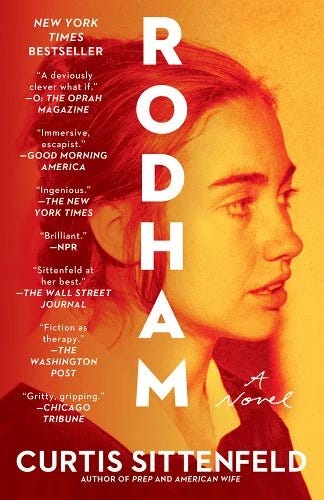
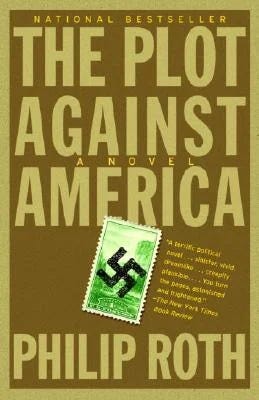
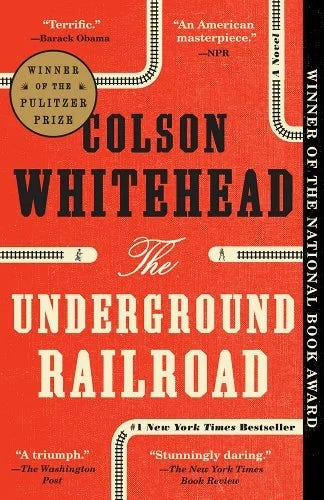
Colson Whitehead’s The Underground Railroad posits a world where there was an actual railroad carrying enslaved persons to safety, something I thought was true maybe until middle school. Philip Roth’s The Plot Against America imagines a country if anti-Semitism became governmental policy. Curtis Sittenfeld’s Rodham covers the life of Hillary Rodham after she breaks up with her boyfriend, Bill Clinton.
One thing that strikes me about these highly inventive, enjoyable books is that even though they play with historical events, the America rendered in the texts is stubbornly similar to the country reflected in actual events. Some things cannot be escaped.
I’m glad that I got this piece to a place where I could talk about some books, the ostensible focus of this newsletter, but I got more to work out.
Many mornings I watch the first 15 minutes of the Today show and it seems like at least one of the lead stories for the last however long has been weather/climate related. Wildfire smoke. Devastating tornados. Montpelier, Vermont under water from flooding. Melting glacier water engorging rivers and washing entire homes away in Juneau, Alaska.
Watching these reports day-after-day it struck me that it’s possible we’re living through a historic tipping point when it comes to climate change. Lots of weird things are happening. Coastal ocean temperatures near Florida are at hot tub levels. It appears that the circulation of the ocean’s currents are being disrupted, which really could be an extinction event should that circulation cease as some are predicting.
An entire coastal community in on the island of Maui was devastated in mere minutes by a literal firestorm, residents fleeing into the Pacific Ocean for shelter. One commenter I heard on television compared it to the devastation of the WW II firebombing of Dresden, a “perfect storm” of drought, high winds and a spark of flame.
I didn’t think coastal towns could be that dry. My coastal town seems to be always quite wet, but of course the thick of hurricane season is imminent, and that superheated ocean is awfully good fuel, so our own disaster could be coming any time. I try not to think about it, except that I think about it every day.
Mrs. Biblioracle and I just spent a glorious rain-free week in Norway, which made for a great vacation, but is highly anomalous weather. Their glaciers are retreating too.
It’s possible we’re not only living through history, but through an inflection point that signals the end of history (at least as far as mankind is concerned).
Or not. We don’t know. Honestly, I hope we don’t know in my lifetime.
There was another event this week that just happened, but which Black folks immediately understood as historically important.
Dubbed the Alabama Sweet Tea Party by some, the Montgomery Brawl by others, the fight started when the white owner of a pontoon boat and his buddies who were blocking a riverboat filled with passengers from docking attacked the riverboat co-captain, Damien Pickett. A dozen or so onlookers sprung to Pickett’s defense, including one of the riverboat’s crew who jumped in and swam to shore (earning the nickname, AquaMane). Another man was shown clobbering the initial attackers with a folding chair. Picket tossing his hat into the air after first being struck as if to signal “game on” is destined to be a meme for all-time.
Under normal circumstances I am not a proponent of using violence to settle disputes, but watching the footage and reading about the context has me seeing the response to the jumping of Damien Pickett as a clear case of justice served.
The boat owner could have moved his boat from the place it never should have been in the first place at any time. He and his buddies definitely could’ve refrained from ganging up on Pickett. They could have done the smart thing and skedaddled when they saw the opposition massing against them, but instead, they got their assess kicked and I do not weep for them for a moment.
At the New York Times, in a highly recommended column, Charles Blow writes of the significance of the response against the attackers:
Blow compares what happened in Alabama to the lingering trauma experienced by onlookers to the murder of George Floyd, the literal terror of their powerlessness to prevent an armed man with the power of the state behind him from killing a man right in front of them.
The broader response of Black folks on Twitter has been a kind of outpouring of collective community satisfaction, even joy, the events of the brawl leading to the creation of some truly funny and even poignant memes reflecting the historical nature of the events.
On the one hand, it’s strange to consider some entitled drunks getting their asses kicked as a meaningful moment in history, but the resonance of the event suggests that history comes in lots of different forms.
The whole event is a perfect example of Faulkner’s famous comment on history: “The past is never dead. It’s not even past.”
Maybe Faulkner’s right, there’s no such thing as history, and we’re forever consigned to being plagued by what came before.
Links
This week at the Chicago Tribune I pay tribute to Julie Schumacher’s The English Experiment, the third in her very enjoyable Payne University trilogy.
Beware low-priced travel guidebooks appearing on Amazon. They’re quite possibly AI-generated and utter garbage.
At LitHub, Emily Temple offers “8 Novels to Read This Month While Your Therapist is on Vacation.”
Barbara Kingsolver has some advice on how to read your way through Appalachia.
If you haven’t read this week’s “A Book More People Should Know About” you should.
Catching up with book-related humor at McSweeney’s with Shanna Walsh’s “Dangerous Children’s Picture Books That Could Be Lurking in Your Home”
Requests
All books linked throughout the newsletter go to The Biblioracle Recommends bookstore at Bookshop.org. Affiliate proceeds, plus a personal matching donation of my own, go to Chicago’s Open Books and the Teacher Salary Project. Affiliate income is $175.35 for the year.
1. Mrs. Palfrey at the Claremont by Elizabeth Taylor
2. Woman Running in the Mountains by Yuko Tsushima
3. The Hopkins Manuscript by RC Sherriff
4. Just a Mother by Roy Jacobsen
5. Cassandra at the Wedding by Dorothy Baker
Joanne S. - Brick, NJ
Lots of republished classics in this list that I haven’t read, so I’m a little at sea, but I wouldn’t be The Biblioracle if I wasn’t willing to take a swing and miss every so often. The pick is Barney’s Version by Mordecai Richler.
Book Giveaway
I initially thought it would be fun to tease the books that I’m giving away and then reveal the titles the next week, but I realized that this is a lousy way to generate interest in subscribing in order to have a chance to win the books.
This week’s books are:
Jokes Told in Heaven by Babies by Lucy Thomas
A galley copy of Casey Plett’s A Safe Girl to Love
Lucy Thomas is the pseudonym for a well-known writer associated with McSweeney’s while Casey Plett was once a columnist that I edited when I was working on the McSweeney’s website and I just found out that she has a new book coming out in November as part of the Biblioasis Field Notes series titled On Community. If you like inventive and humane short stories, these are the books for you. Next week I’ll announce the winner publicly.
To win, you must be a paid subscriber to this newsletter. Each week on Monday morning I will use a random number generator to choose a winner from the list of paid subscribers. I will email this person to tell them they’ve won and then give them a few days to respond. If they don’t respond, I’ll do the drawing again. Even the shipping is on me. I’m just that kind of guy.
As of this moment, you’d have approximately a 1 in 300 chance of winning this week’s books. Over time, if this little scheme works, you’ll never get better odds than that.
Heartfelt plea for additional paid subscriptions
Derek Krissoff and I are attempting to build a (small) but mighty outpost for people who like to think more deeply about books and commune with others who feel the same. In order to achieve this and to be able to provide resources to other writers to contribute, we rely on those who can afford to subscribe to the publication. Currently those annual subscriptions are 25% off.
While I am back from my travels, sadly, my luggage is not, luggage which contained my completed copy of Colson Whitehead’s Crook Manifesto, which was terrific, as anticipated.
The luggage also contained 2/3 of my underwear, two of my all-time favorite t-shirts and the best sweater I ever had. United Airlines says it made it to Newark, but has not been heard from since. It was bizarrely difficult to even speak to a human about the situation. The only thing that worked was tagging United on Twitter and complaining. I’m now told to expect resolution within 8 weeks time. If you’re in the Newark area and see a green bag with a retractable handle wandering the streets, confused, let me know.
If you have lost luggage stories of your own, please share them in the comments as misery loves company.
All best,
John
The Biblioracle




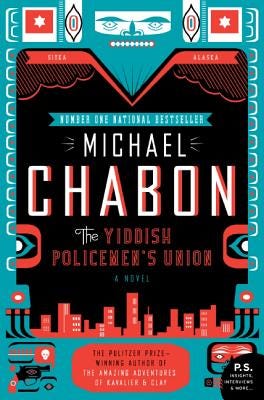
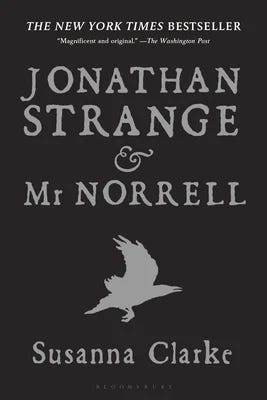
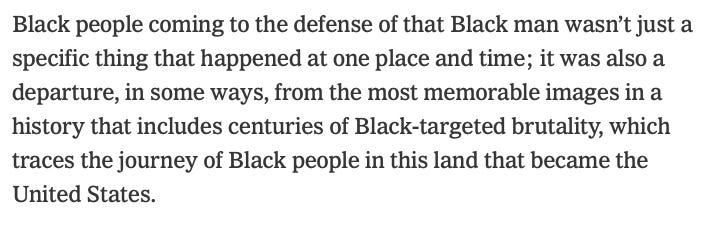
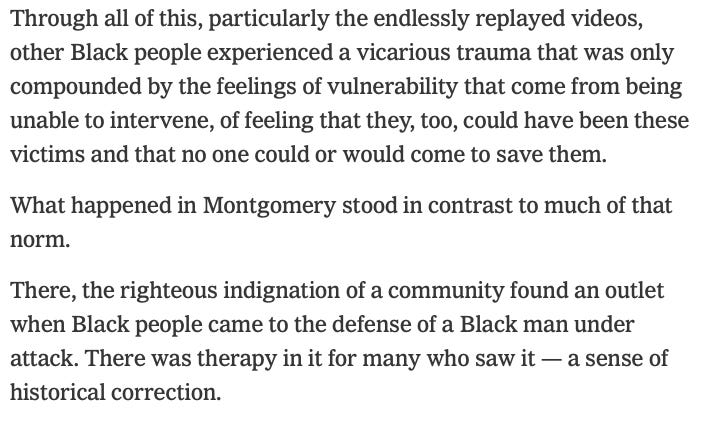

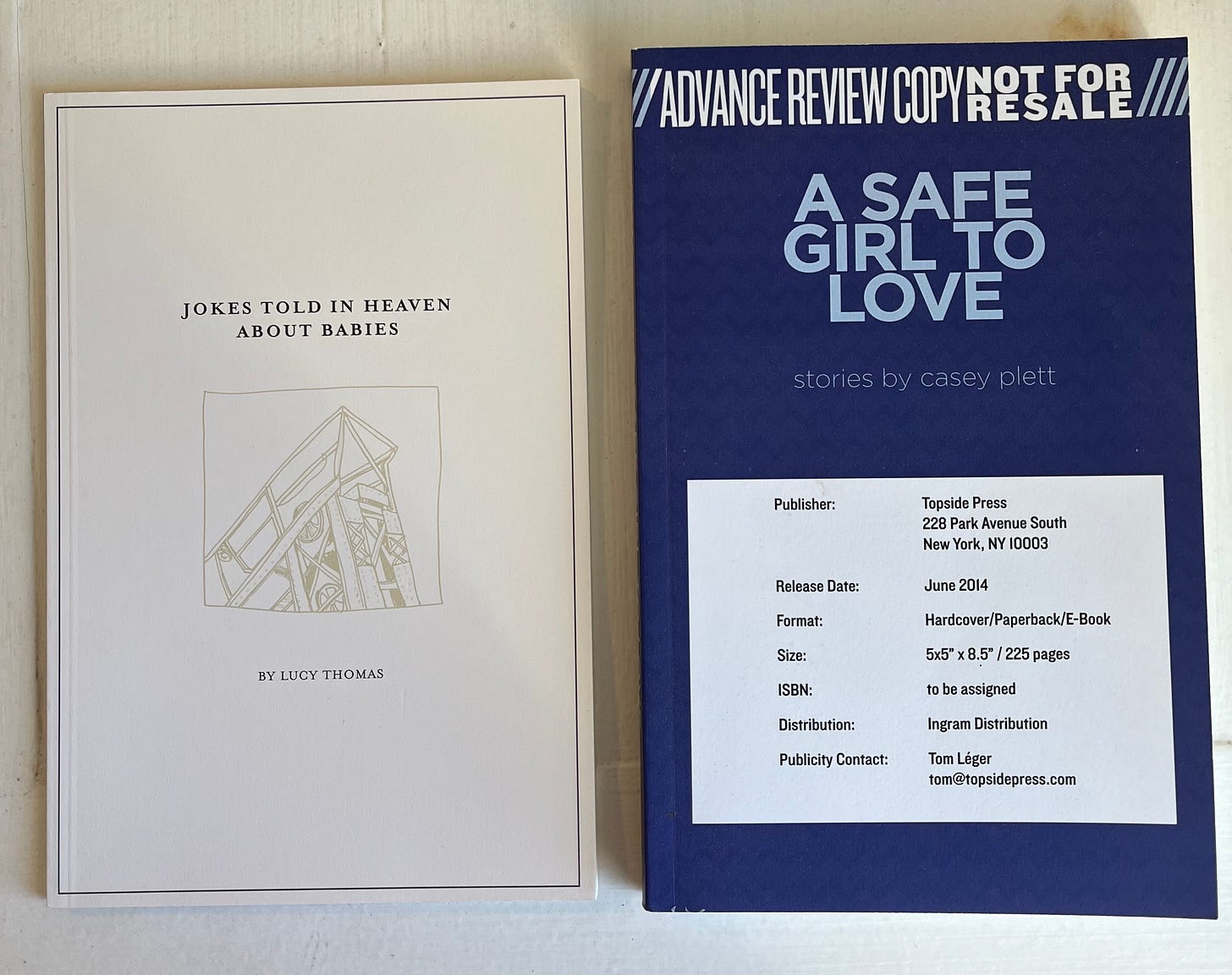
I'm a historian, so to me part of what makes the past become 'history' is the work of humans to contextualize and interpret the pieces of the past left to us. This need not be academic history, although I do think attending to the most complete body of evidence available to us is part of the work, otherwise we just end up telling stories that cherry-pick what's pleasing to us. But I can think of rich oral traditions that communicate alternate ways of understanding time and place, that communicate the essence of a culture, and which talk to other oral traditions (and sometimes material evidence and written documents) to produce history just as much as my work in an archive does. I think of 'the past' as everything that's happened, only part of which gets preserved in evidence that will survive to the next generation (and the one after that, and the one after that . . . ) and history is the work of looking at the evidence and trying to figure out what is plausible given the totality of that evidence. History is also fluid - so I could have written a good history of the Iran-Contra scandal in 2000, for example, attending to all the available evidence and making sound interpretations based upon that . . . but I could equally write a better history now, with more documents available to me, that might contradict that 2000 work. I guess I'm circling in on: history is a human creation. It doesn't exist without our efforts to construct it.
I'm Team Faulkner on the question of history. In fact, I'd rename the entire discipline "preludes." As an academic discipline, people could specialize in Recent Preludes, 19th Century Preludes, Ancient Preludes, etc. Things are as they are now because of what happened in the past. We love to believe that we've cut ties with the past, that from now on, we're making the future from scratch. But there is no "scratch," only previous mistakes that we've rationalized, condemned, sentimentalized, or just plain suppressed or forgotten. The poet Wordsworth wrote, "the child is father of the man." And quoting that great 20th Century philosopher Bugs Bunny, I can only add, "In spades!"